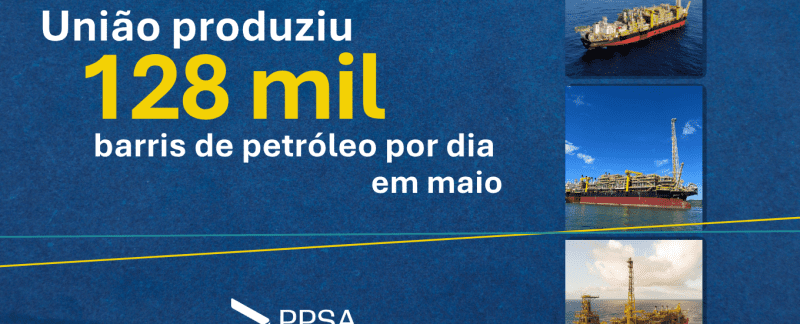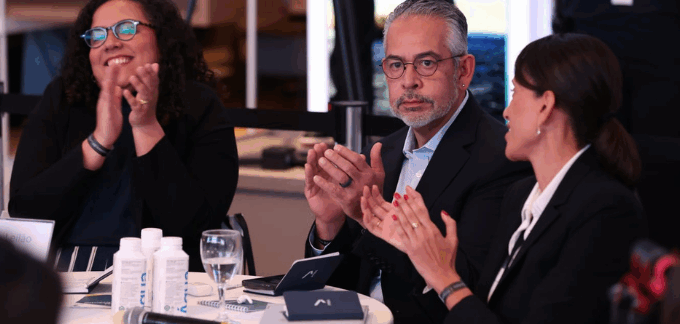A União teve direito a uma média de 128 mil barris de petróleo por dia (bpd) em maio, somando os volumes da produção nos contratos de partilha de produção – Veja mais
Produção de petróleo da União sobe 13,2% e alcança 128 mil barris por dia em maio
Seis mil candidatos farão prova do 1º Concurso Público da PPSA neste domingo
A PPSA (Pré-Sal Petróleo) realiza neste domingo, 29 de junho, as provas objetivas e discursivas de seu 1º Concurso Público, nas cidades do Rio de Janeiro, São Paulo e Salvador. Veja mais
Leilão da PPSA comercializa 74,5 milhões de barris de petróleo da União com potencial de arrecadação recorde de R$ 28 bilhões
A PPSA (Pré-Sal Petróleo) comercializou 74,5 milhões de barris de petróleo da União nesta quinta-feira, 26, no 5º Leilão de Petróleo da União realizado na B3, com potencial de arrecadação Veja mais
Petrobras vence disputa pelo último lote do 5º Leilão de Petróleo da União
No encerramento do 5º Leilão de Petróleo da União, o lote de Sépia foi arrematado pela Petrobras, ao valor de Brent datado menos US$ 1,69/barril. A disputa foi acirrada entre Veja mais
Com valor recorde do dia, Petrochina e Refinaria de Mataripe vencem disputa pelo lote de Itapu no 5º Leilão de Petróleo da União
As empresas Petrochina e Refinaria de Mataripe arremataram o Lote 6 do campo de Itapu, de 6,5 milhões de barris de petróleo, ao valor de Brent datado menos US$ 0,65/barril, Veja mais
Petrochina e Refinaria de Mataripe vencem disputa por lote do Campo de Búzios
As empresas Petrochina e Refinaria de Mataripe adquiriram, em conjunto, o lote 5, referente à produção de 3,5 milhões de barris de petróleo do campo de Búzios por Brent datato Veja mais
Petrobras arremata último lote do Campo de Mero no 5º Leilão de Petróleo da União
A Petrobras arrematou o Lote 4, do campo de Mero, com 15 milhões de barris de petróleo do FPSO Alexandre de Gusmão e 2,5 milhões de barris de petróleo do Veja mais
Equinor vence disputa acirrada com Petrobras, Petrochina e Refinaria de Mataripe pelo 3º Lote de Mero
O terceiro lote de Mero, de 14 milhões de barris de petróleo do FPSO Duque de Caxias, foi arrematado pela Equinor, após disputa acirrada em viva-voz com a Petrobras e Veja mais
Grupo Galp/ExxonMobil vence a disputa pelo lote de Sepetiba no 5º o Leilão de Petróleo da União
O Lote 2 de Mero, referente ao FPSO Sepetiba, de 14 milhões de barris de petróleo, foi novamente disputado em viva-voz pela Petrobras e pelo Grupo Galp/ExxonMobil, que venceu a Veja mais
Petrobras vence a disputa em viva-voz com o grupo Galp/ExxonMobil no 5° Leilão de Petróleo da União
Recorde na comercialização do primeiro lote de petróleo da União oferecido no 5º Leilão, que está sendo realizado neste momento na B3. A Petrobras venceu o leilão com o valor Veja mais











